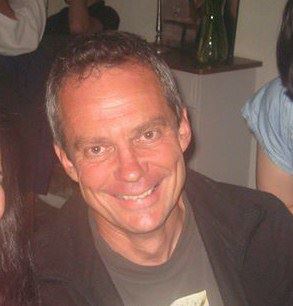Access the full text here.
Author: perezparedes
Stephen Fry’s guide to British etiquette
On weather talk, queues and “after you” loops.
BAAL 2016 Anglia Ruskin, Cambridge #CFP abstract deadline 1 March
12th Teaching and Language Corpora Conference
TaLC 12 will be held from 20 to 23 July 2016 at Justus Liebig University Giessen, Germany.
Important dates:
Call for papers: 15 October 2015
Deadline for abstract submission: 15 January 2016
Notifications of acceptance: 15 February 2016
Registration opens: 15 February 2016
Registration closes: 15 June 2016
Conference: 20-23 July 2016
Merry Christmas everyone :)

Merry Christmas everyone, hope you have a great holiday time and a wonderful, happy new year 2016.
Pascual.
CFP 15th AELFE Conference abstract deadline Feb 28
15th International AELFE Conference
Today’s and Tomorrow’s Challenges in Languages for Specific Purposes and Translation
Universidad de Alcalá
Guadalajara, Spain, 23 – 24 June 2016
1st CALL FOR PAPERS
In the context of an increasing specialization in languages and translation due to the increasing number of contexts where specialized languages and translation are needed in the world along with the current internationalization of Higher Education and the effect of technology in education and , it is necessary to revise the role of languages for specific and academic purposes and translation. AELFE 2016 intend to bring together researchers, academics, language professionals with a genuine concern in these areas, along with academics and experts in other fields and languages all over the world.
This conference is aimed at those who are interested in all aspects of research and applications of these fields who might be interested in publishing high quality papers in reputed academic journals and in a special volume of peer-reviewed selected presentations under the seal of the Universidad de Alcalá Publishing.
Confirmed Plenary Speakers:
Ana M. Gimeno (Universitat Politécnica de Valencia, Spain)
MK Jauregi Ondarra (Utrecht University, The Netherlands)
Alex Boulton (Directeur adjoint UFR Lansad, France)
Thematic strands:
- Discourse Analysis
- Terminology and Lexicology
- Translation
- ICT
- Didactics and Language Acquisition
- Cognitive Linguistics and Languages for Specific Purposes
Conference languages: English, French, German, Italian, Spanish.
SUBMISSION OF ABSTRACTS
We invite contributions in the form of paper presentations or posters on any of the above topics (but not restricted to them). Please submit your proposal in EN, DE, FR, IT, or ES, saved as PDF https://easychair.org/conferences/?conf=aelfe2016, by 28 January 2016,
Paper presentations will consist of a 20-minute talk followed by 10 minutes for questions and discussion. Especially welcome will be paper submissions presenting research (either complete or in progress) related to the conference topics. In addition, they should be interesting and academically of good quality. Poster abstracts are particularly welcome if they report on innovative research and/or on projects relevant to at least one of the conference topics. Presenters who want to submit more than proposals can do it in form of posters (two more). A prize to the best poster will be granted at the end of the conference.
The first page of the Proposal should include:
- the title of the paper / poster
- the Abstract (300 words)
In addition, please indicate:
- whether it is a proposal for a paper presentation or a poster
- the language of the presentation (EN, FR, DE, IT, RO or ES)
- the thematic strand it would fit best.
Abstracts should include a brief outline of the research/project context and clearly indicate the objectives, method(s) and results. All abstracts will be peer-reviewed by the conference programme committee and AELFE panel coordinators.
Participants interested in displaying copies of their work (books, teaching resources) or project materials should contact the organisers at aelfe2016@uah.es
KEY DATES:
Deadline for submission of abstracts: February 28, 2016
Registration opens: March 1
Notification of acceptance: March 28, 2016
Deadline for submitting complete
short paper (2500 words) May 15, 2016
Early registration deadline: May 1, 2016
Registration deadline to ensure the inclusion
in the conference program: June 1, 2016.
REGISTRATION & CONFERENCE FEE:
The conference fee includes: the conference folder, book of abstracts, refreshments and snack lunch on both conference days, and the conference dinner on Thursday. Please note that it does not include accommodation and the trip on Saturday.
| Early bird
(till 15 May) |
Participants who are not members of AELFE | EURO 170 | |
| Members of AELFE | EURO 120 | ||
| Students (with proof of registration in 2015-2016) | EURO 35 | ||
| After 15 May | Participants who are not members of AELFE | EURO 185 | |
| Members of AELFE | EURO 135 | ||
| Students (with proof of registration in 2015-2016) | EURO 45 | ||
Reduced fee for students includes conference folder coffee breaks (not lunch) and the volume of proceedings.
Account details for the bank transfer will be found in the conference website after February 1st 2016.
More details soon at www.aelfe.org and on the conference website http://www3.uah.es/aelfe2016 (temporary)



